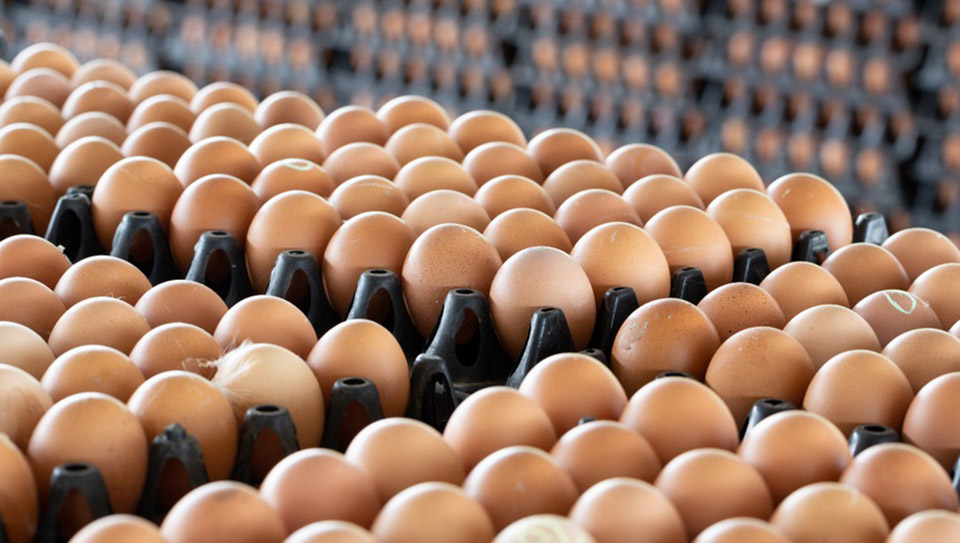
Egg prices in Thailand are set to increase by another 20 satang, bringing the price to 3.80 baht per egg. The network of cooperative farms that raise chickens for eggs has announced the price hike, citing factors such as the intensifying heat wave and reduced egg production.
The Thai Cooperative Network for Chicken Egg Producers, consisting of eight cooperative farms across the country, issued a statement notifying members and farmers of the price adjustment. This marks the second increase in less than two weeks. The recent surge in temperatures has led to increased stress among egg-laying hens, resulting in decreased egg quantities and smaller egg sizes. Additionally, global conflicts have caused a rise in the prices of animal feed ingredients, further impacting production costs.
Chanuwut Siwamok, Deputy Secretary-General of the Chicken Egg Producers Association, explained that the current hot weather and reduced water availability have led to decreased egg production and smaller egg sizes. Farmers are now facing additional costs, such as purchasing water for the hens and installing cooling systems in their open-air barns or using constant cooling systems in enclosed barns, which increases electricity costs.
Furthermore, chicken egg producers are grappling with rising costs of imported animal feed ingredients due to global conflicts. While the Thai government has assured that the conflicts do not directly impact Thailand, the increased prices of raw materials have affected local producers.
Chanuwut estimated that egg production in the market has decreased by 5-10%, with smaller or poorly managed farms experiencing up to a 20% decline. Some small-scale farmers have even begun to cull their flocks due to unsustainable costs.
The recent price adjustment will bring egg prices back to the level seen on January 11, when the cooperative network first raised prices from 3.50 to 3.80 baht per egg. Following subsequent adjustments, prices had decreased to 3.40 baht per egg on April 17 but will now rise again to 3.80 baht per egg from April 29.
Despite the challenges, Chanuwut reassured consumers that egg supplies remain sufficient, and there is no need for panic buying. However, he emphasized that future price adjustments would depend on cost factors, especially if the hot weather persists and if conflicts abroad continue to affect raw material prices.
In addition to eggs, the price of duck eggs has also increased by 20 satang per egg, effective April 22, further burdening consumers. The Thai Ministry of Commerce recently convened a meeting with both the National Pig Farmers Association and the Chicken Egg Producers Association to discuss ways to support farmers amidst the ongoing challenges.
To alleviate the situation, the Ministry of Commerce has facilitated the distribution of excess agricultural products through nationwide events and mobile markets over the past three weeks. This initiative aims to stabilize prices and ensure adequate supply until conditions return to normal.
While egg production remains stable overall, efforts are being made to encourage consumers to choose smaller-sized eggs, which are currently in surplus, to help balance market dynamics and offer more affordable options to the public. (TNA)








